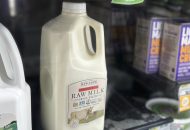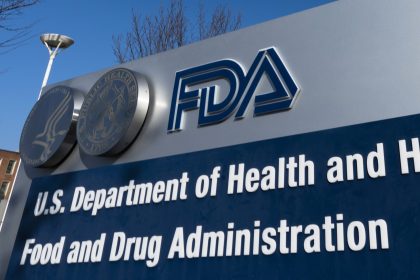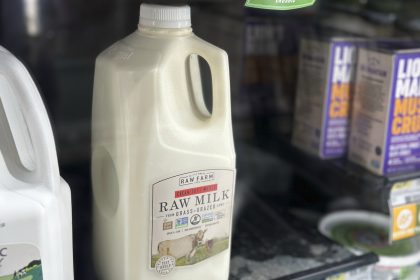Artificial Sweeteners: How Safe Are They?

WASHINGTON — If you’ve ever set out to eat a little healthier, you may have gravitated towards sugar-free or zero-calorie products. Many of these products contain artificial sweeteners, which provide a sweet taste with fewer calories and less effect on your blood sugar.
Though advertised as a healthy alternative, artificial sweeteners are still chemical additives. Here, we’ll explain what they are, the different types available, how they may help you and what the current research states about their safety.
Explaining Artificial Sweeteners
Sugar (sucrose) is not inherently evil; it occurs naturally in fruit (fructose) and milk (lactose). It is also added to many food products to sweeten their flavor, including sodas, energy drinks, coffee drinks, candies, baked goods, ice cream and jams. Sugar is also used as a preservative in some breads and meats.
Sugary, processed foods tend to be higher in calories, so people trying to lose weight may avoid them. People with diabetes who monitor their blood sugar levels may also try to limit their sugar intake.
Artificial sweeteners, or sugar alternatives, provide a similar sweet taste as regular sugar but with low to zero calories. In some cases, they spike your blood sugar less or not at all.
Different Types of Artificial Sweeteners
Artificial sweeteners are also called nonnutritive sweeteners because they don’t provide additional nutrients, just the taste of sweetness. Many sugar substitutes exist, and some have been FDA-approved as “GRAS” or generally recognized as safe.
The two main categories are called high-intensity sweeteners and sugar alcohols.
High-intensity sweeteners can be up to 300 times sweeter than regular sugar, so you only need a small amount. They contain very few calories and may not affect your blood sugar. Here are the FDA-approved options:
- Acesulfame-K.
- Aspartame.
- Monk Fruit.
- Neotame.
- Saccharine.
- Sucralose.
- Stevia.
Sugar alcohols are commonly added to low-carb foods. They have a less intensely sweet taste than high-intensity sweeteners and may have an even lesser effect on your blood sugar. They also contain low to zero calories. Examples approved by the FDA include:
- Erythritol.
- Lactitol.
- Maltitol.
- Mannitol.
- Sorbitol.
- Xylitol.
Erythritol is a popular sugar alcohol because it is found naturally in fruit and fermented products. Since it is “natural,” it may seem safer when added to food products, but a 2023 study suggests a possible link between erythritol and cardiac events.
Possible Health Benefits
Here are a few reasons why products with artificial sweeteners have gained popularity.
- Low in Calories: The primary benefit of artificial sweeteners is that they allow you to enjoy sweet foods without the high calories. This seems helpful if you are trying to reduce your caloric intake. However, in May 2023, the WHO published new guidelines stating simply replacing regular sugar with NNS is not an effective way to lose weight. They highlight that long-term effects are unknown.
- Some Don’t Affect Blood Sugar: Most artificial sweeteners have little impact on your blood sugar. Research shows that erythritol has zero impact on your blood sugar — your body doesn’t metabolize it and your blood doesn’t absorb it. You excrete it before it has a chance to impact your insulin levels.
- May Be Safer on Teeth: It is common knowledge that too much sugar can harm your teeth. Sugar alternatives may be a safer bet. Some research suggests erythritol may even help protect against tooth decay.
Sugar vs. Sugar Alternatives: Which Is Safer?
Many sugar alternatives have potential side effects, like short-term gastrointestinal distress and unknown long-term side effects. Sticking with regular sugar, when eaten in moderation, may not be so bad.
The American Heart Association offers daily guidelines if you’re concerned about your sugar intake.
- Women: up to 25 grams of added sugar per day.
- Men: up to 36 grams of added sugar per day.
The American Diabetes Association also offers sugar guidelines for people with diabetes. They state that sugar affects blood glucose the same way as carbohydrates and you do not need to avoid all sugar or foods with added sugar; just limit the amount and monitor your blood sugar levels. Of course, it’s best to talk with your doctor about your personal needs.
So Sweet
If you enjoy sweet foods, artificial sweeteners are an appealing option. They are low in calories and don’t affect your blood sugar. The FDA considers them safe, and they should be okay in moderate amounts. Like any other additive, we don’t necessarily know the long-term health effects.
Eating food with real sugar in moderate amounts is also safe. Remember that sugar also naturally occurs in fruit and milk. Fruit is a nutritious, healthy, whole food that contains other nutrients, vitamins and minerals.
You can reach us at [email protected] and follow us on Facebook and X (formerly known as Twitter)

























